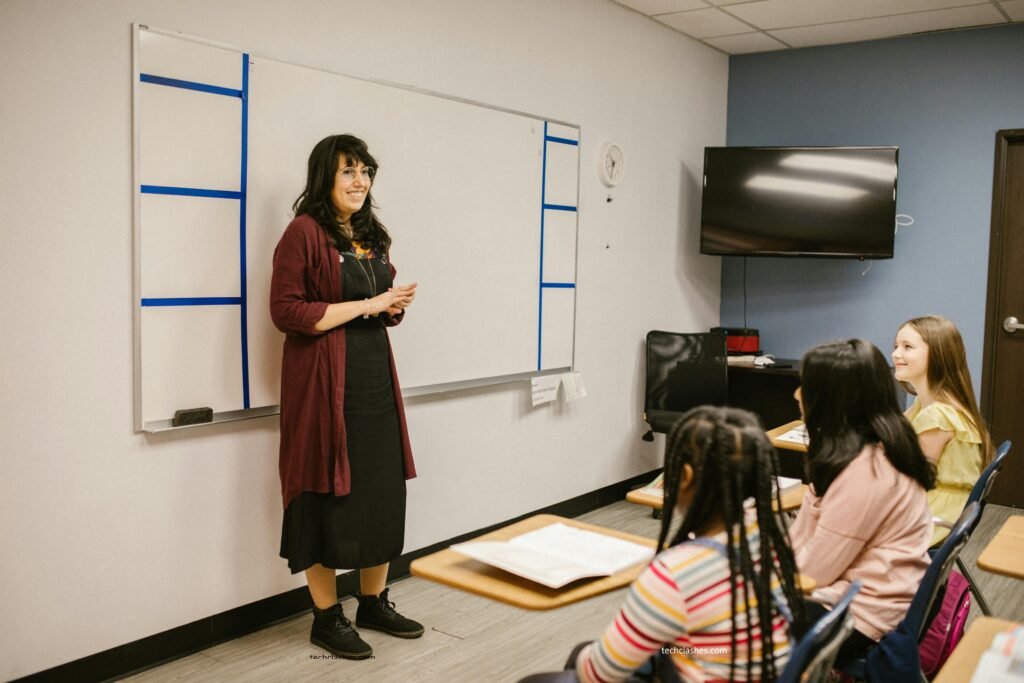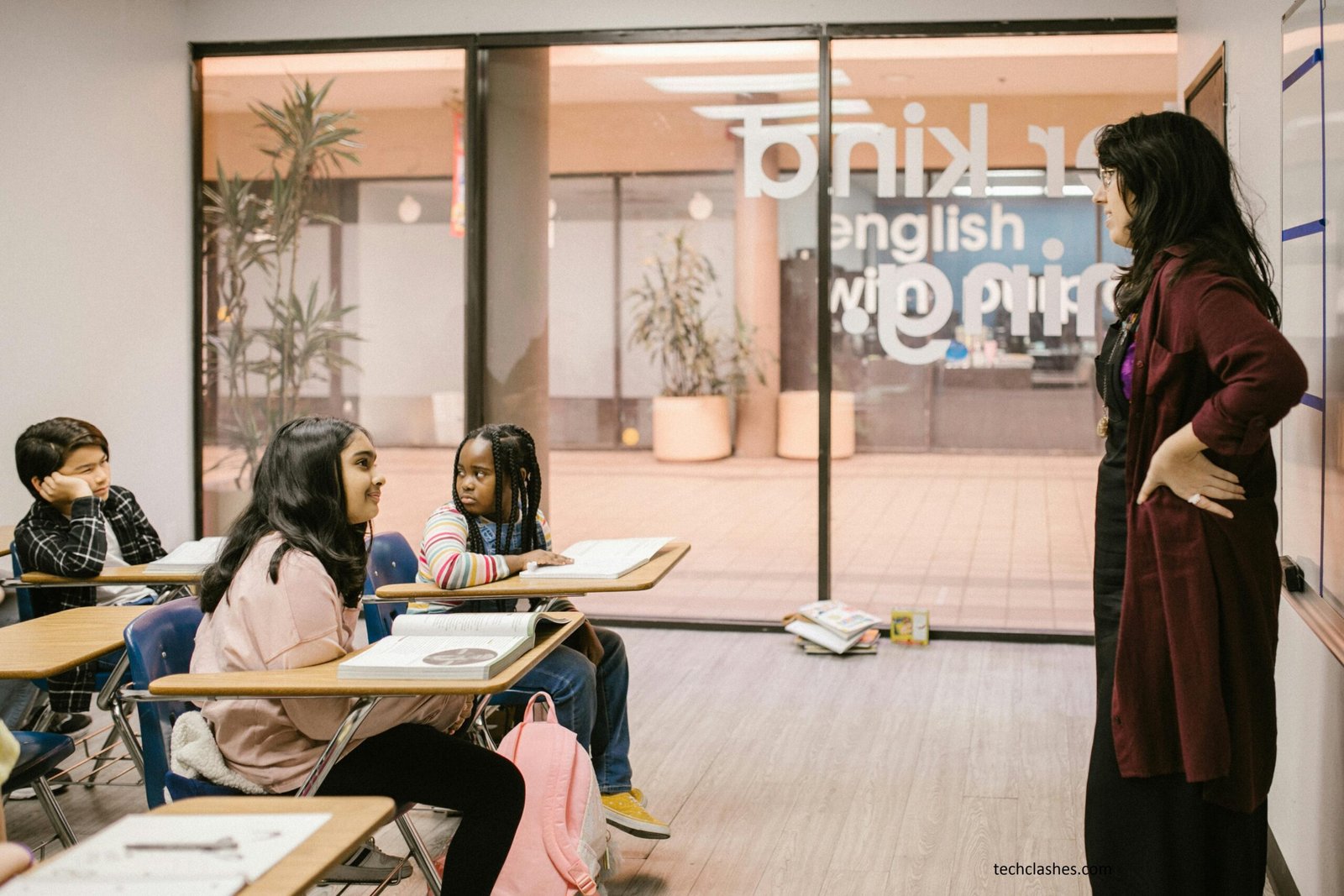School Counselors are critical in the scholarly, social, and profound improvement of understudies. These experts are prepared to give direction and backing to understudies assisting them with exploring different difficulties they might experience during their instructive excursion.
The essential obligation of school advisors is to help understudies accomplish their maximum capacity by tending to their scholar, individual, and profession-related needs. They work intimately with understudies to foster scholastic plans, School Counselors set objectives, and investigate vocation choices. Moreover, school advocates advise administrations to assist understudies with adapting to private matters, for example, family issues, peer clashes, and psychological well-being concerns.
Understanding the Role of a School Counselor
- Responsibilities and Duties
- Qualifications and training
(1) Responsibilities and Duties
School educators have countless liabilities and commitments highlighted supporting the learned person, social, and near and dear thriving of students. A piece of their key liabilities include:
Educational Coordinating:
School advocates help students advance academic goals, pick appropriate courses, and focus on capacities. They guide academic achievement and help students with overcoming insightful challenges.
Backing:
School guides advocate for the necessities of students and advance a positive and far-reaching school environment. They work agreeably with instructors, watchmen, School Counselors, and administrators to determine essential issues that could impact student accomplishment and thrive.
Conversation:
School advocates talk with educators, gatekeepers, and other school staff people to address student concerns and encourage legitimate interventions. They guide concentrating on corridor the chief philosophies, educational offices and direct the board methodologies.
Aversion Tasks:
School teachers plan and execute expectation programs highlighted propelling a positive approach to acting, preventing substance abuse, and settling issues like pestering and cyberbullying. They show students strong strategies for real-life adaptations and give resources for crisis aversion and intercession.
Data Examination and Evaluation:
School guides accumulate and separate data associated with student academic execution, interest, and direction. They use this information to perceive designs, School Counselors assess the practicality of coordinating activities and seek data-driven decisions to assist with understudying accomplishments.
(2) Qualifications and training
Capabilities and preparing for school instructors normally include:
Schooling: A four-year certification in brain research, directing, training, or a connected field is normally expected for passage into a guiding project. Many school guides hold a graduate degree or higher in school directing or a connected discipline.
Licensure: School guides are frequently expected to be authorized or ensured by the state in which they work. Prerequisites for licensure change by state however commonly remember finishing an advanced education for guiding, finishing a specific number of directed clinical hours, School Counselors, and breezing through a licensure test.
Particular Preparation: School advisors get specific preparation in regions like youngster and juvenile turn of events, guiding strategies, emergency mediation, and multicultural directing. They may likewise get prepared in unambiguous mediations or remedial methodologies.
Clinical Experience: School advocates ordinarily complete regulated clinical experience as a component of their alumni preparation. This might include working in schools or other instructive settings under the oversight of an authorized guide or clinician.
Proceeding with Training: School guides are expected to take part in proceeding with schooling to keep up with their licensure and remain current with advancements in the field. This might include going to studios, courses, or meetings, taking part in proficient associations, or seeking extra accreditations or postgraduate education.
Relational Abilities: The school advocates areas of strength for need abilities to assemble affinity with understudies, guardians, educators, and different partners. They should be compassionate, patient, and socially delicate in their communications with different populations.
Moral Principles: School advocates are supposed to comply with moral rules and expert guidelines of direct. This incorporates keeping up with secrecy, staying away from irreconcilable circumstances, School Counselors, and acting to the greatest advantage of their clients.
Building a Relationship with Your School Counselor
- Importance of communication
- Strategies for fostering a positive relationship
(1) Importance of communication
Correspondence is of central importance for school consultants as it fills in as the foundation for building strong associations, developing comprehension, and working with positive outcomes for students. Coming up next are a couple of reasons highlighting the importance of correspondence concerning school coordination:
Spreading out Similarity:
Effective correspondence helps school counselors spread trust and fondness with students, gatekeepers, instructors, and various accomplices. Building a decent relationship is key for laying out major areas of strength where students feel content with searching for courses and sponsorship.
Seeing Necessities:
Through open and thoughtful correspondence, school educators can procure information about the clever prerequisites, troubles, and characteristics of every student. This understanding engages supporters to accommodate their assistance and interventions to address the specific concerns of individual students.
Offering Assistance:
Clear and accommodating correspondence licenses school counselors to offer significant assistance, course, and back to students defying insightful, individual, or social hardships. By listening carefully and offering an endorsement, guides can help students with investigating difficult situations and cultivate adaptability.
Working with Joint Exertion:
Convincing correspondence works with collaboration between school guides, instructors, chiefs, and watchmen to assist with understudying accomplishments. By sharing information, sorting out tries, and changing mediations, accomplices can coordinate to make areas of strength for a steady organization for students.
Supporting for Students:
School counselors advocate for the necessities and interests of students inside the school neighborhood. Clear and tempting correspondence engages educators to communicate students’ inclinations, advocate for principal resources, and advance systems and practices that energize a positive and complete school climate.
Giving Information:
School guides bestow critical information to students and watchmen about insightful ventures, school and calling decisions, prompting organizations, and resources open inside the school and neighborhood. By giving precise and ideal information, counselors connect with students to come to informed results about their scholarly and individual lives.
Split the difference:
Convincing social capacities is major for settling conflicts and settling social issues inside the school neighborhood. School advocates use full focus, empathy, and intervention methodology to work with helpful trade and find regularly good solutions for conflicts.
(2) Strategies for fostering a positive relationship
Encouraging positive connections is significant for school guides in building trust and affinity with understudies, guardians, educators, and different partners. The following are a few systems to develop positive connections really:
Undivided attention:
School advocates ought to rehearse undivided attention by focusing completely on the speaker, keeping in touch, and giving verbal and nonverbal signs to show understanding and sympathy. This exhibits regard and approval of the encounters and sensations of others.
Sympathy and Figuring Out:
Showing compassion and understanding towards the encounters and difficulties of understudies, guardians, and partners assists with establishing a steady and nonjudgmental climate. School advisors ought to endeavor to see circumstances according to the viewpoint of others and approve of their sentiments and encounters.
Building Trust:
Building trust takes time and consistency. School guides ought to be solid, legitimate, and straightforward in their connections. Keeping guarantees, keeping up with privacy, and exhibiting honesty is fundamental for laying out trust with understudies, guardians, and associates.
Regard and Appreciation:
School advisors ought to extend regard and appreciation for the variety of foundations, viewpoints, and encounters inside the school’s local area. Esteeming social contrasts, recognizing individual qualities, and commending accomplishments encourage a feeling of having a place and inclusivity.
Successful Correspondence:
Clear, open, and deferential correspondence is fundamental for building positive connections. School instructors ought to impart actually by putting themselves out there obviously, effectively paying attention to other people, and giving input and backing depending on the situation.
Coordinated Effort and Cooperation:
Teaming up with instructors, heads, guardians, and local area individuals to assist with areas of strength for building and advancing understudy achievement. School instructors ought to look for amazing chances to team up on shared objectives, share data and assets, and work together to address difficulties and track down arrangements.
Personalization and Individualization:
Perceiving the extraordinary necessities, qualities, and interests of every understudy and partner cultivates a feeling of association and trust. School advisors ought to fit their way of dealing with and meeting the singular necessities of understudies and take part in customized associations that show care and consideration.
Proficient Turn of Events and Development:
Ceaselessly looking for open doors for the proficient turn of events and development shows a promise to greatness and improves validity as a school guide. Taking part in continuously getting the hang of, maintaining momentum with exploration and best practices, and looking for criticism and mentorship add to individual and expert development.

Academic Support
- Guidance in course selection
- Academic planning and goal-setting
(1) Guidance in course selection
Giving direction in course affirmation is a basic responsibility of school guides, featuring assisting understudies with arriving at informed choices in their own clever way. Coming up next are two or three methods for actually planning understudies in course confirmation:
Appraisal of Understudy Interests and Targets:
School supporters ought to connect with understudies in conversations about their propensities, assets, calling needs, and scholarly objectives. Understanding understudies’ propensities and wants assists advisors with giving re-tried direction in getting courses that line with their inclinations and likely plans.
Survey of Graduation Necessities:
Guides ought to acclimate understudies with graduation fundamentals, including how many credits are expected for graduation, required courses, and elective choices. Exploring these necessities assists understudies with guaranteeing they meet scholastic benchmarks while analyzing their inclinations through elective courses.
Assessment of Scholastic Pathways:
Teachers ought to examine different shrewd pathways open to understudies, for example, respect courses, Critical level Arrangement (AP) courses, general Baccalaureate (IB) programs, capable courses, and twofold enlistment choices with neighborhood universities. Investigating these pathways assists understudies with obliging their course choice to their adroit assets and interests.
Thought about School and Calling Targets:
Guides ought to help understudies in mulling over how their course choice lines up with their post-optional objectives. Empowering understudies to get courses that line with their calling advantages and school essentials can chip away at their foundation for future undertakings.
Support for Scholastic Inconveniences:
For understudies who could battle instructively or need extra help, advisors ought to give direction in picking courses that propose.
Survey Depictions and Essentials:
Guides ought to audit course portrayals, fundamentals, and situation rules with understudies to guarantee they have an undeniable enthusiasm. This assists understudies with making informed choices about course confirmation thinking about their scholastic status and interests.
Support of Changed Mentoring:
Guides ought to urge understudies to seek a nice direction by exploring various subjects across various disciplines. Connecting with understudies to further develop their course confirmation enables wise interest, definitive reasoning abilities, and a more prominent impression.
Seeing Scholastic Movement:
All through the course choice cycle, supporters ought to screen understudies’ instructive headway, and offer constant help and heading.
(2) Academic planning and goal-setting
Canny preparation and objective setting are urgent bits of an understudy’s instructive excursion, and school guides anticipate a central part. Coming up next are two or three strategies for actually helping understudies with sagacious status and objective setting:
Self-Assessment: School advertisers can work with self-evaluation exercises to assist understudies with seeing their wise assets, interests, and locale for headway. This care spreads out the groundwork for describing gigantic instructive targets.
Progressing Mind-blowing Objectives: Advisors can advise understudies on the most effective way to set Express, Quantifiable, Achievable, Significant, and Time-bound (Wise) targets. Empowering understudies to make their feelings understood and sensible scholarly targets assist them with remaining on track and pushed.
Significant length Organizing: Insight can work with understudies to develop significant-length instructive plans that frame their ideal illuminating and vocation pathways. By taking into account post-optional targets and graduation basics, understudies can frame a social occasion of courses and extracurricular exercises.
Conclusion
In light of everything, school guides anticipate a huge part in supporting the specialist, social, and precious outcome of understudies. From giving direction in course choice to working with scholastic preparation and objective setting, advises go about as partners.
Through useful correspondence, joint effort, and changed help, guides attract understudies to defeat difficulties, seek after their propensities, and accomplish. By creating positive affiliations, driving consideration, and allowing assets and sponsorship associations, educators add to spreading out reliability.
As understudies progress through their instructive jobs, guides stay undeterred in their obligation to move understudy achievement, pushing. By working in relationships with understudies, guards, educators, and different assistants, guides add to the total improvement of understudies.
FAQs
Q.1 How might I plan a meeting with my school advocate?
Booking a meeting with your school guide is normally simple and clear. You can ask about arrangement accessibility by visiting the directing office, reaching your guide through email or telephone, or utilizing.
Q.2 Are discussions with my school advocate secret?
Indeed, generally speaking, discussions with your school guide are secret. Notwithstanding, there are special cases for secrecy, for example, circumstances where there is a gamble of mischief to yourself. Your instructor will make sense of the constraints of privacy during your most memorable gathering.
Q.3 Consider the possibility that I feel awkward conversing with my school advisor.
It’s not unexpected to have a reluctant or uncertain outlook on opening up to a guide, particularly. If you feel awkward conversing with your relegated guide, you can demand to see an alternate instructor or investigate.
Q.4 Could my school guide at any point assist me with school applications and grants?
Totally! School instructors are exceptional in helping understudies with school applications, grant looks, and monetary guides Amazingly open doors. They can give direction on picking reasonable universities, composing application articles, and complying with application time constraints.
Q.5 How would it be a good idea for me to respond if I’m encountering an emotional well-being emergency?
If you’re encountering an emotional well-being emergency, it’s pivotal to promptly look for help. You can contact your school guide, a confided-in educator, or any suitable emergency hotlines or emotional wellness assets locally. Keep in mind, that you’re in good company, and help is dependably accessible.



